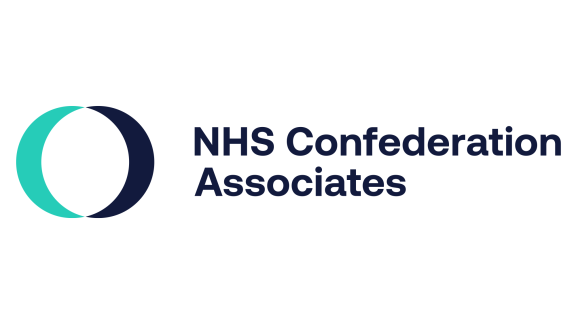Driving an anti-racism strategy through cultural change

Roisin Fallon-Williams shares how her trust is working to develop an environment where efforts to address racism form part of a continuous improvement and cultural change programme.
Despite the recognition that racism exists within the NHS and the many interventions aimed at addressing it, we know that progress has been slow and difficult to demonstrate – with some measures improving and others worsening.
This should not be a surprise, because we cannot talk about policies in isolation and hope to effectively root out the issues. Anti-racism is very much about cultural change, and that is the approach we have taken at Birmingham And Solihull Mental Health NHS Foundation Trust. Our vision is to develop an environment where racism and its impacts are openly acknowledged, where staff are supported and allowed to discuss their experiences without fear of negatively impacting their careers. But crucially, where efforts to address these problems form part of a continuous improvement and cultural change programme.
I believe values are the best way to do this.
At our trust, our core values are being compassionate, inclusive, and committed. So, we wanted to develop a continuous improvement effort to promote these values and the culture needed to make our vision a reality.
As a chief executive communicating with 4,500 members of staff on a daily basis, simplicity and consistency are key. At the same time, making it clear that this needs to be owned by the whole organisation, rather than a select few.
Barriers to overcome
Our starting point mirrored that seen elsewhere in the NHS, with staff facing discrimination from colleagues and abuse from patients.
Sadly, none of this was new, meaning that there was a great deal of unresolved trauma and distrust about the potential for change and the sincerity of attempts to do so.
There were barriers to overcome and misconceptions to challenge. Staff responses such as ’We treat everyone the same’ and ’We are already making good progress’ also highlighted that either staff didn’t see that racism was still a problem, or that they didn’t want to accept it that it was.
We recognised from the outset the importance of going about our change process in an authentic way, avoiding tick-box exercises and making sure that we responded to the concerns staff had on both sides.
Developing an anti-racist framework
In 2022 we approached our race equity network and, alongside leads from across the organisation including colleagues with lived experience of racism, we formed a working group to plan how we would take the work forward. The input from colleagues with lived experience was invaluable and greatly informed the direction of the work.
We then reached out to an external consultancy and six months later we arrived at a behavioural framework. This was heavy on detail – 60-pages in total - which posed challenges around how to convey such a complex strategy in a way that staff could engage with.
“The aim was to make it as simple as possible”
We wanted to go beyond the theory of the framework and provide staff with practical tools that they can use, either for themselves or as colleagues, managers, or leaders, to incorporate in their day-to-day work. We split the framework into four branches and we built them around our core values. The aim was to make it as simple as possible, ensure that the change process was embedded in everything that we do, and that we were all accountable for sustaining and building on that change.
Taking practical action
To begin with, our appraisal process – the one thing that touches everybody in the organisation – asks how each of us are bringing out our values in specific ways through our work. This means that we focus on actions, not words. It also ensures that people are held to account and that the conversation is continually revisited. The process is working, because surveys show an increase in awareness of our values across the organisation: almost all staff (98 per cent) are now aware of our values and our expectations of them.
We are also changing the way we respond to concerns raised by staff. In the past, people experiencing harassment, discrimination or racism from colleagues were mentioning it informally to managers but reluctant to use our formal grievance policies. While we now do more to encourage colleagues to report incidents through formal channels, we offer support to that person regardless of the reporting path they choose. When a report is made, a representative decision-making group decides on potential actions. Even if no further action is taken, the subject of the investigation is guided through additional training to develop their values and understand the impact of their behaviour on others.
“We introduced a new programme around anti-racist supervision for people who line-manage staff”
Finally, we are changing the way that we support staff working with patients, as we know that experiencing racism on shift is not uncommon. We introduced a new programme around anti-racist supervision for people who line-manage staff, with tools on understanding the impact and the appropriate way to support their teams, including by reporting internally and, where appropriate, to the police. The supervision also allows people who have experienced racism the space to talk about it freely through debriefs.
“…our organisational values are the chain that links all of our anti-racism work”
Developing this culture internally for staff, we can also improve the effectiveness of policies aimed at reducing health inequalities for patients, such as the patient carer race equality framework (PCREF).
This process is and always will be ongoing, but our organisational values are the chain that links all of our anti-racism work. They are the vehicle that guides each of the specific actions we take and the starting point for all the changes we have achieved.
Roisin Fallon-Williams is chief executive of Birmingham And Solihull Mental Health NHS Foundation Trust. You can follow the trust on X @bsmhft



